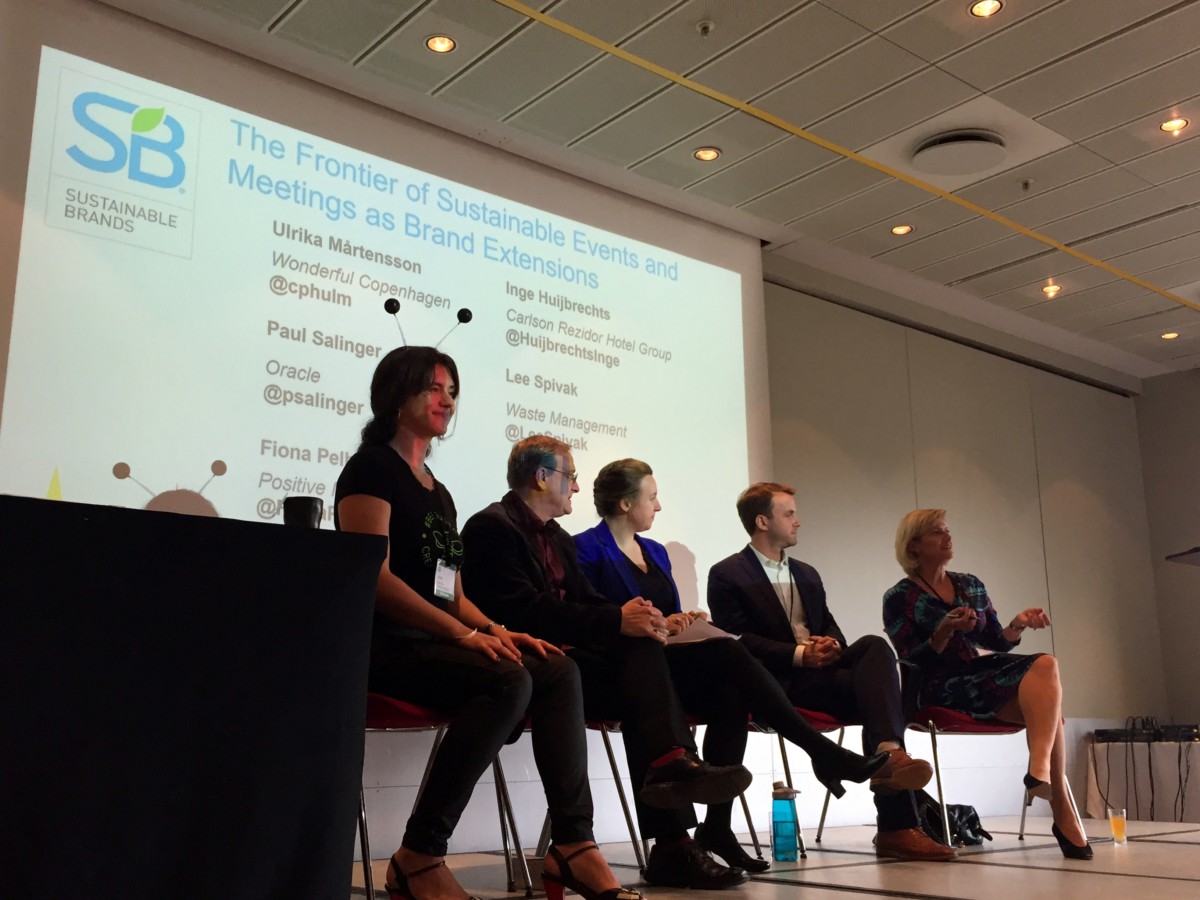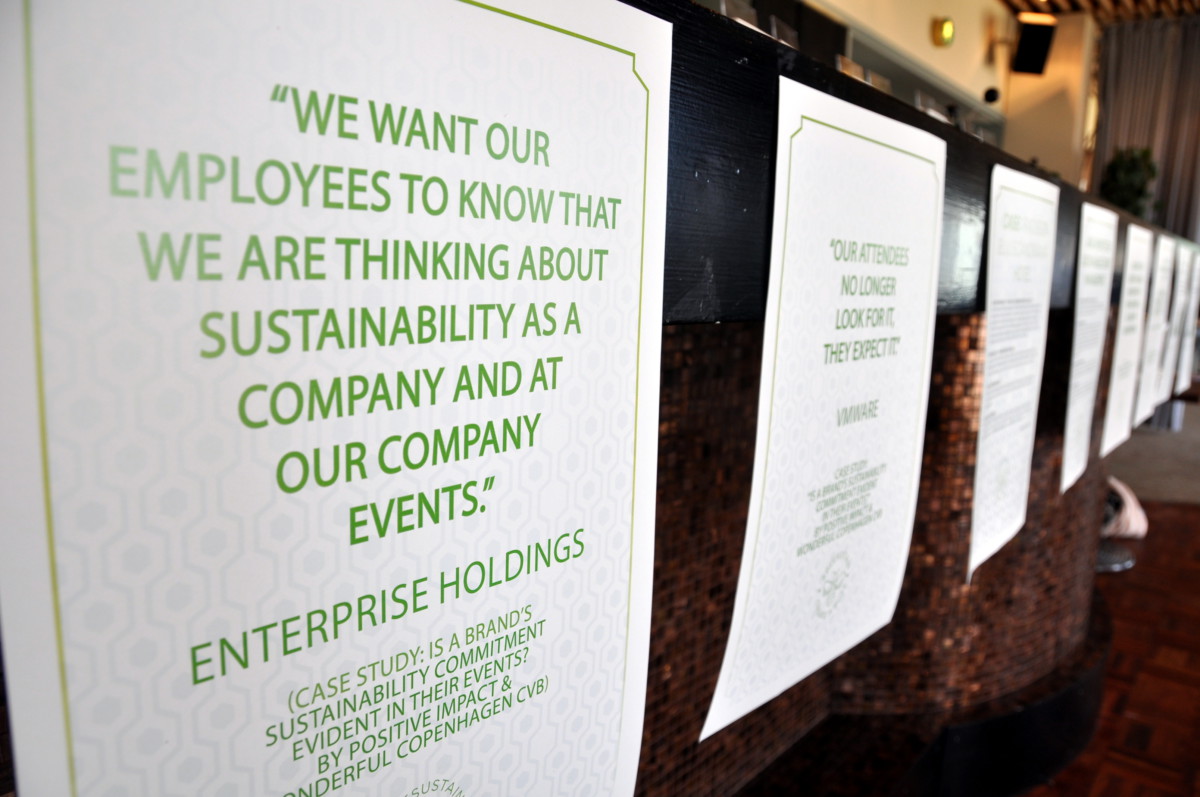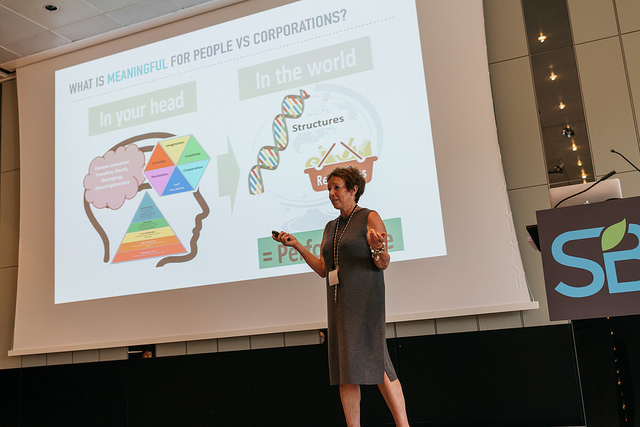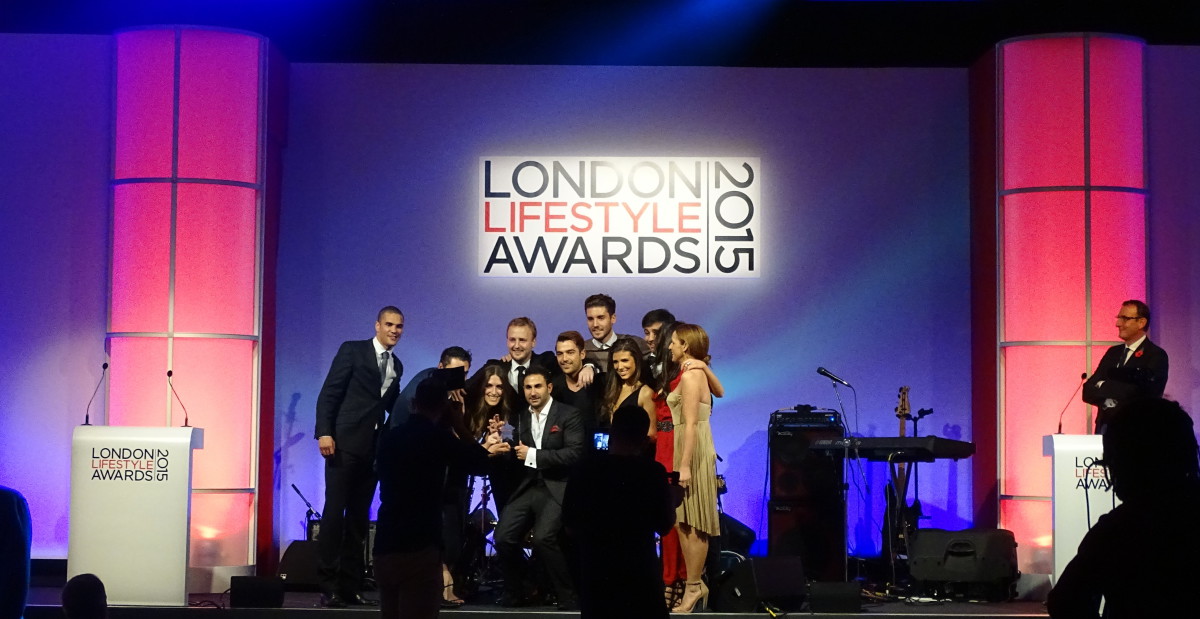Business innovators and sustainability influencers from some of the largest brands across the globe gathered together in Copenhagen, 25-28 September 2016 for the Sustainable Brands Conference. The message was clear- sustainability needs to be embedded into business models – it is a catalyst for innovation and a driver for profit. It is an opportunity for businesses, society and the planet. With live events increasingly becoming part of many brands content marketing strategies, it makes sense that brand professionals need to be considering the implementation of sustainability into their events and what better opportunity than to learn from the experts in Copenhagen – the Capital of Sustainable Meetings.
One thing was clear from the low turnout of attendees at Copenhagen Convention Bureau’s breakout session – more awareness needs to be raised about creating sustainable events. As our facilitator, Ulrika Martensson, PR and Communications – Meetings and Conventions at Copenhagen CVB pointed out – events are an extension of the brand so sustainable brands need to be creating sustainable events. Ulrika, who greeted attendees in a Bee Sustain T-shirt and bee antennas, is the face of #BeeSustain – the campaign to promote sustainability in events. The aim of the campaign is to share the lessons learnt by the CVB from the sustainable events they had been involved with. Since assisting the UN in implementing a sustainability strategy at their climate change conference in 2009, which was attended by 33,526 people from NGOs, media, business and government, Copenhagen CVB have gathered a lot of best practice examples.
As attendees entered the room they were given case studies and asked to work in groups to brainstorm ideas about how to engage delegates in community projects at events and to identify the pros and cons of sustainability strategies at events. Experts from all corners of the industry including sustainable business consultants, event agencies, waste management organisations, hotel chains and more were available for delegates to consult with before presenting their answers. Groups could also use the inspiration hub that had been created to read case studies and testimonials from sustainable event organisers. Once the answers were compiled each group read aloud their answers and the experts awarded jars of honey sweets to the group with their favourite answer. Before the session ended attendees were given a miniature pot of honey and were asked the question – how do we accelerate the adoption of sustainability in event? Each option was printed out and attached to a bowl. Attendees then voted for their answer by placing their honey in the bowl under their preferred answer. The answers with the highest votes were:
- By playing the lead role and sharing best practice
- By using sustainable suppliers.
Common misconceptions about implementing sustainability into events included that it is too complicated or too expensive. In a session earlier that day, where a panel of sustainable event experts sat on a panel, the issue of cost had also been raised. Inge Huijbrechts, Vice President Responsible Business, Carlson Rezidor, asserted that sustainability should not cost extra – it should be a standard component in companies business models. Paul Salinger, Strategic and Creative Communications/Sustainability Champion, Oracle, identified quality issues as a common concern but assured delegates that quality had improved and was often better than the non sustainable options. He posed the question – if sustainable products equated to quality why would you not want to pay more? The MICEBlogHQ took this concept and polled Twitter followers on their preferences. 73 % of those who responded said they would be willing to pay extra. With regard to sustainability making the event planning process more complicated, Ulrika advocated that using the brand values as a framework for the event actually simplifies the process – people know the criteria they needed to make their decisions by e.g if the supplier supports sustainability in the same way the company does then they are a match for working together.
Discussions amongst the group and with the experts revealed that when it comes to sustainability, there is a lack of accountability. People assume the government is taking care of it, event professionals assume the hotel is taking care of it, marketers assume that the event organisers are taking care of it. The session concluded that it was everyone’s responsibility. As event professionals we have the ability to change behaviour in a multi dynamic way. We can demand sustainability from our suppliers. If suppliers do not have a sustainable offer then we can encourage them to adopt one. We can change the behaviour of delegates by implementing small changes to the delivery of our events to ensure we leave less of a carbon footprint – changes that actually enhance the attendee experience. We can also educate delegates by explaining why we are making these changes. By making attendees consciously aware of the changes we make, we are able to improve our own business image, reduce our impact on the environment and change delegate behaviour to reduce their impact on the environment. We are able to support social projects and local businesses.
The world won’t save itself and individual torch bearers can’t do it alone. This is is going to take collaboration between all sectors to create an industry wide shift.
Photos by Copenhagen Convention Bureau













A very well written and informative article